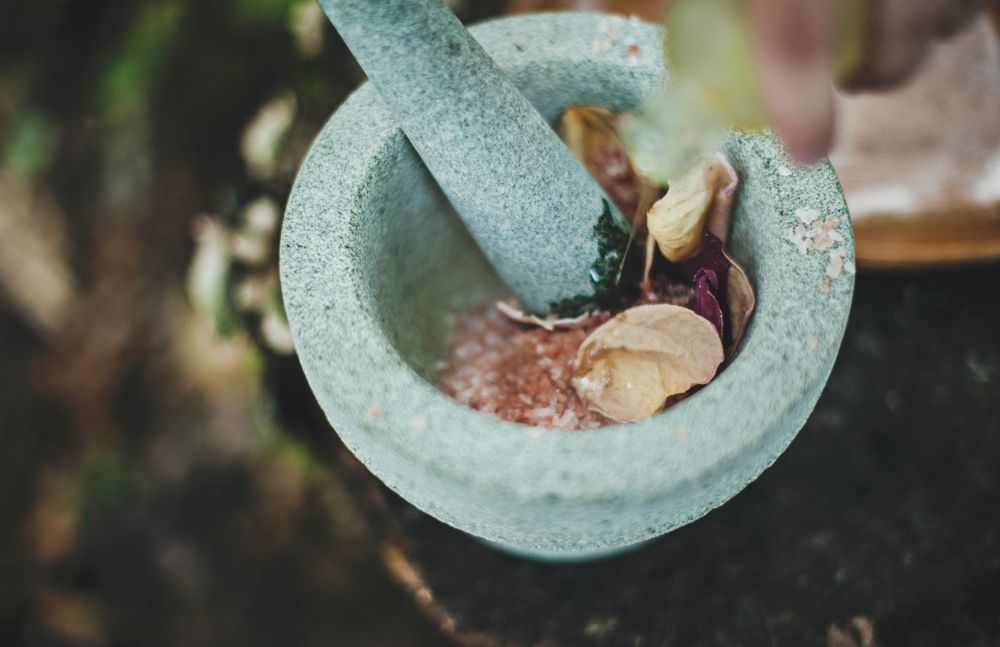Magic of Herbs at your fingertips
Vegetables and fruits are an integral part of the Indian diet. However, one often tends to overlook the importance of herbs in our meals. Apart from enhancing the flavor of your food, herbs are power packed with healing properties.
Ayurveda and Naturopathy believe in the health benefits of the herbs and support that including these in your daily diet can work wonders for your overall well being. You may be already using most of them in your cooking. But the knowledge about their healing properties can turn your food into medicine.
Let us take a look at the different types of herbs and how these can help you heal.
1. Coriander Leaves
Popularly known as dhaniya, this green stalk is an essential essence of all Indian dishes. It adds to the aroma or taste of any meal. But, that is not all. Coriander leaves are a rich source of Vitamin A and Vitamin C which can help in improving your immunity. Also, the anti-inflammatory properties of coriander can help in relieving different types of aches and pains. Thus, it is recommended for people suffering from arthritis and rheumatism.
2. Mint Leaves
Also known as Pudina, mint leaves are used to make chutneys and in various Indian dishes like Biryani, etc. This herb has the power to clean blood. Thanks to the anti-bacterial properties it possesses it can relieve you of problems like a sore throat, headaches, vomiting as well as dental issues.
3. Turmeric Leaves
Turmeric or Haldi is a widely used spice in India. However, its leaves too are remarkably beneficial and comprise of numerous medicinal properties. They have anti-bacterial powers which can help in relieving pain in the joints, heart problems, liver ailments, skin problems and digestive issues. What’s more, these leaves comprise of properties that can fight cancerous cells.
4. White Lotus
A rather beautiful flower, the white lotus is a healing powerhouse. Everything from its leaves to its seeds, flowers, and roots comprise of healing properties. These help in overcoming infection of the eye, diarrhea, constipation and abdominal ailments.
5. Holy Basil
Commonly known as Tulsi, the holy basil has bacteria-killing properties, which is why it proves beneficial in overcoming headaches and indigestion. It also helps in relieving cough and chest congestion and can be added to the tea while concocting it. According to research, the tea made from Holy Basil can also help in reducing the chances of breast cancer in women.
6. Lemon Grass
An integral part of the Thai cuisine, lemongrass is majorly grown in Northern India. It is added to the tea and is said to work wonders in relieving various aches and pains like joint pain, muscle pain, body ache, etc. It also has a positive impact on the stress levels and can help lower these.
7. Basil Seeds
Commonly known as Sabja, Basil seeds have a soothing and cooling effect, which is why it is added to Falooda and juices during summers. A rich source of Omega-3 fatty acids, Basil seeds work wonders for your skin. They also help in improving cardiac well-being, boosting energy, enhancing the immunity and lowering the blood pressure.
8. Curry Leaves
A must-have in most South Indian dishes, curry leaves or Kari Patta have been used since time immemorial to cure stomach ailments and diarrhea. Since this herb is rich in iron content, it is considered to be perfect for people suffering from iron deficiency and anemia. Curry leaves also comprise of Alkaloid, an antioxidant that assists in fighting the free radicals that can cause various ailments. These can also reduce the side effects caused by chemotherapy.
9. Saffron
A somewhat costly herb, Saffron or Kesar in its purest form is a rich source of Folate and is beneficial for pregnant women. It is also rich in Vitamin A, B, and C which improves the immune system and reduces your chances of falling ill.
10. Shoe Flower
The flower of Hibiscus which is also known as shoe flower is mainly used to cure headaches. It is usually added to herbal oils as it works wonders for the hair. The paste of the flower also works as a laxative and can cure severe constipation.
Get More from Your Food
Evidently, herbs are not just useful in enhancing the flavors of your foods but can also help you take care of several health issues. So, next time don’t dismiss these as just taste enhancers. What’s more, try growing them in your kitchen garden such that you always have them handy.
Let the herbs be best friends and your healer.
Reference Links

